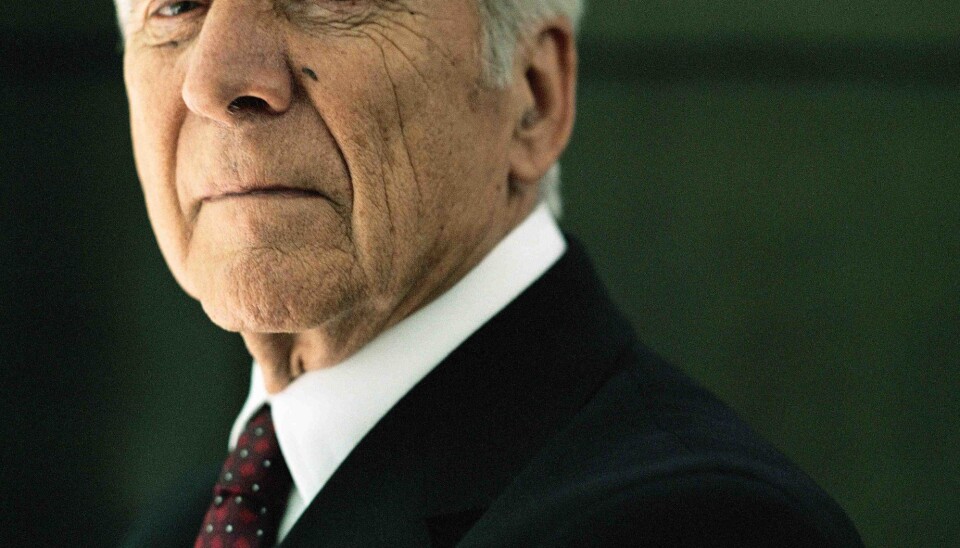
How to get a top executive talking
Sociologists used to focus their research mainly on people in need. But now they’re increasingly directing their studies at the elite, and that presents them with new interviewing challenges.
Sociologists are coming to terms with their reluctance to deal with high society. Their fieldwork now takes place just as frequently in executive offices as in ghettos.
It does, however, add new challenges to a research field that traditionally aimed to give the poor and powerless a voice, when the researchers suddenly start scrutinising the power elite.
This new challenge became very clear to a Danish sociologist when he tried to interview representatives of trade unions and employer organisations with a friendly, welcoming and open interview technique which is actually intended for interviewing socioeconomically disadvantaged people.
“I realised that it’s a completely different interview situation when you interview powerful members of the elite and when you interview drug addicts and single mothers,” says Frederik Thuesen, of the Danish National Centre for Social Research (SFI).
Today people are more aware that society is made up of many different groups, and that it’s important to understand the elite because they're the ones who set the agenda. We’ve become a lot less reluctant to deal with what was once called ‘champagne sociology.
“The interview techniques described in the literature are not suitable for these types of interviews.” Traditionally, the sociologist is the well-educated person who controls the situation and who tries to get the respondent to open up. But when it comes to the elite, the situation is almost the complete opposite, he says.
People in power are media-savvy
Thuesen discovered that media-trained people tend to quickly dodge questions, take control of the interview agenda and, unlike socially disadvantaged people, be confronted with questions related to the power they exercise.
“You risk appearing a bit helpless if you fail to maintain control of the interview,” he says.
At one point in his study, he interviewed labour market leaders about the status of refugees and immigrants on the labour market. He found that as soon as the questions became slightly controversial, the leaders started evading the questions.
Instead of entering a confrontational infighting with the source, you need to be insistent without being confrontational. In general, the interviewer should be prepared to switch between several interview strategies during the course of the interview.
“I ended up asking the same question over and over again. But it’s important to keep in mind that this method gives the interview its own kind of emotional logic,” he says.
“Some believe you should go so far as to defeat the respondent with words and almost apply a critical journalistic approach to people in power.”
Inspired by Aristotle's concept of practical rationality
Thuesen believes that this confrontational method can ruin not only the interview, but also the opportunity to get other leaders to speak.
This formed the basis of his journal article Navigating Between Dialogue and Confrontation: Phronesis and Emotions in Interviewing Elites on Ethnic Discrimination, in which he proposes a so-called phronetic approach, involving reflections on the link between reason and emotions, which he argues is suited for handling both dialogue and confrontation in the interview process.
He found inspiration in Aristotle’s thoughts on phronesis: it’s better to rely on sensing what’s the right thing to do in the concrete situation as an ethical and moral human being – instead of being ruled by universal and predefined rules.
This places great demands on background knowledge, attention and presence in the interview. The interviewer needs to listen very carefully to make use of his or her knowledge, experience and sense of propriety when asking questions.
“Instead of entering a confrontational infighting with the source, you need to be insistent without being confrontational,” he says. “In general, the interviewer should be prepared to switch between several interview strategies during the course of the interview.”
In the interviews for his study, Thuesen got his answers, although he wasn’t fully aware of that during the interview itself. He lost a bit of his orientation as the mood in the room became increasingly tense.
Specifically, the researcher can phrase critical questions so that it doesn’t sound like it’s the researcher that’s being critical. They can, for instance, start with ‘But the unions believe…’, so that it’s clear that the interviewed manager will be answering criticism that doesn’t come directly from the researcher.
Champagne sociology
These new challenges have arisen as a result of sociology moving away from studying the poor and powerless towards an increased focus on the powerful world of high society.
“In the past there has probably been a Marxist-like approach to expose and portray the downsides of Capitalism,” says the researcher.
“But today people are more aware that society is made up of many different groups, and that it’s important to understand the elite because they're the ones who set the agenda. We’ve become a lot less reluctant to deal with what was once called ‘champagne sociology.”
---------------------------------
Read this article in Danish at videnskab.dk
Translated by: Dann Vinther





